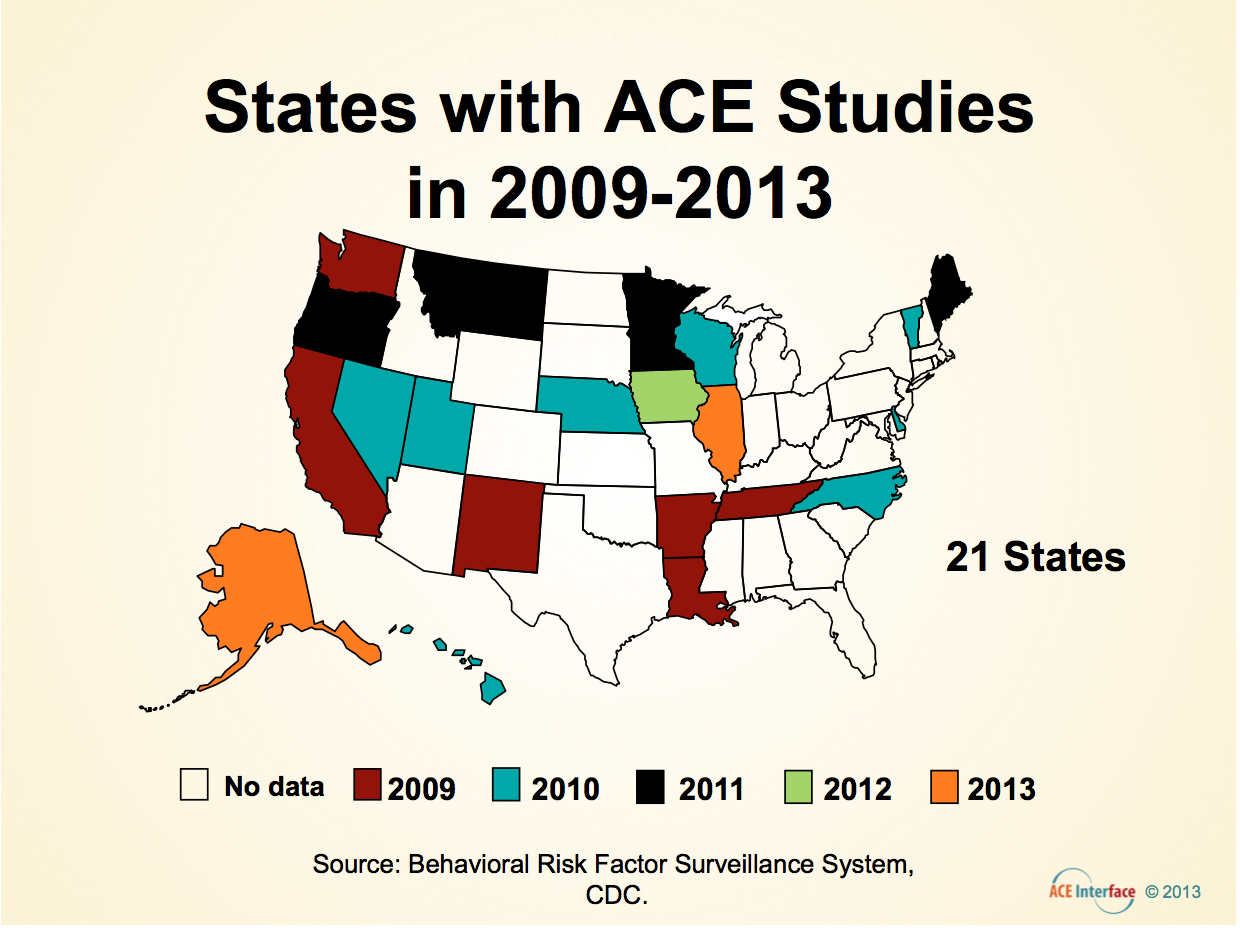So much is happening in events, reports, research and news about adverse childhood experiences and trauma informed practices that it’s hard to keep up. But here are a few notable results:
According to Dr. Robert Anda, one of the co-founders of the CDC’s ACE Study, 21 states have done or are completing their own ACE surveys.
At last month’s National ACEs Summit in Philadelphia, PA, two unifying themes emerged: to be successful in preventing childhood trauma and to stop further traumatizing children and adults who are already
traumatized, people have to work across professional silos and systems, and the changes have to occur at the community level. In other words — this isn’t a top-down endeavor. Martha Davis, executive director of the Institute for Safe Families, which hosted the summit, wrote up six interesting short overviews of the presentations. She and Kristin Schubert of the Robert Wood Johnson Foundation, which sponsored the summit, wrote an op-ed that appeared in the Philadelphia Inquirer this week.
At that same meeting, ISFS released an ACE survey of Philadelphia – the first of a major U.S. city. The
 results were grim: 37.3% of adults experienced 4 or more ACEs — three times higher than the 12.5% in the CDC’s ACE Study. That works out to 432,100 people. This substantially increases their risk of long-term health effects. But, as to the city’s resilience factors, the results were also hopeful: 85% felt the “neighborhoods in which they grew up in were safe”, 77.5% thought their “neighbors looked out, supported, and trusted each other”, and 92.3% said that “someone made them feel special while growing up”.
results were grim: 37.3% of adults experienced 4 or more ACEs — three times higher than the 12.5% in the CDC’s ACE Study. That works out to 432,100 people. This substantially increases their risk of long-term health effects. But, as to the city’s resilience factors, the results were also hopeful: 85% felt the “neighborhoods in which they grew up in were safe”, 77.5% thought their “neighbors looked out, supported, and trusted each other”, and 92.3% said that “someone made them feel special while growing up”.Written By Jane Stevens
This story was originally published @ http://acestoohigh.com/2013/06/21/the-growing-interest-in-aces-and-trauma-informed-practices/ and has been It has been syndicated by permission of the author.
The content and legality of the submission is the sole responsibility of the user responsible for submission. Submitted content does not reflect the views of Social Justice Solutions Inc. and has been posted in accordance with SJS’s terms of service and privacy policy.
Sources:
Our authors want to hear from you! Click to leave a comment
Related Posts







Thanks, this is great article. I believe that the ACES study will prove to be a critical turning point in the health and human services professions beginning to understand the need for a trauma-informed perspective. However, right now trauma-informed care is a missing element in many of our service systems. Our students, alumni and community partners are very excited about the changes they have seen in their practice since we transformed our MSW program (University at Buffalo School of Social Work) to include a trauma-informed and human rights perspective. If you’re interested in learning more about trauma-informed social work, I have a blog post on Trauma-Informed Social Work Practice here: http://njsmyth.wordpress.com/2013/04/19/trauma-informed-social-work-practice/